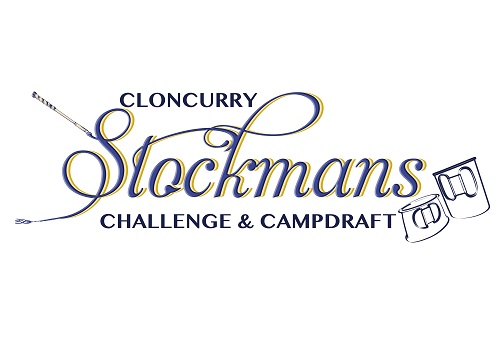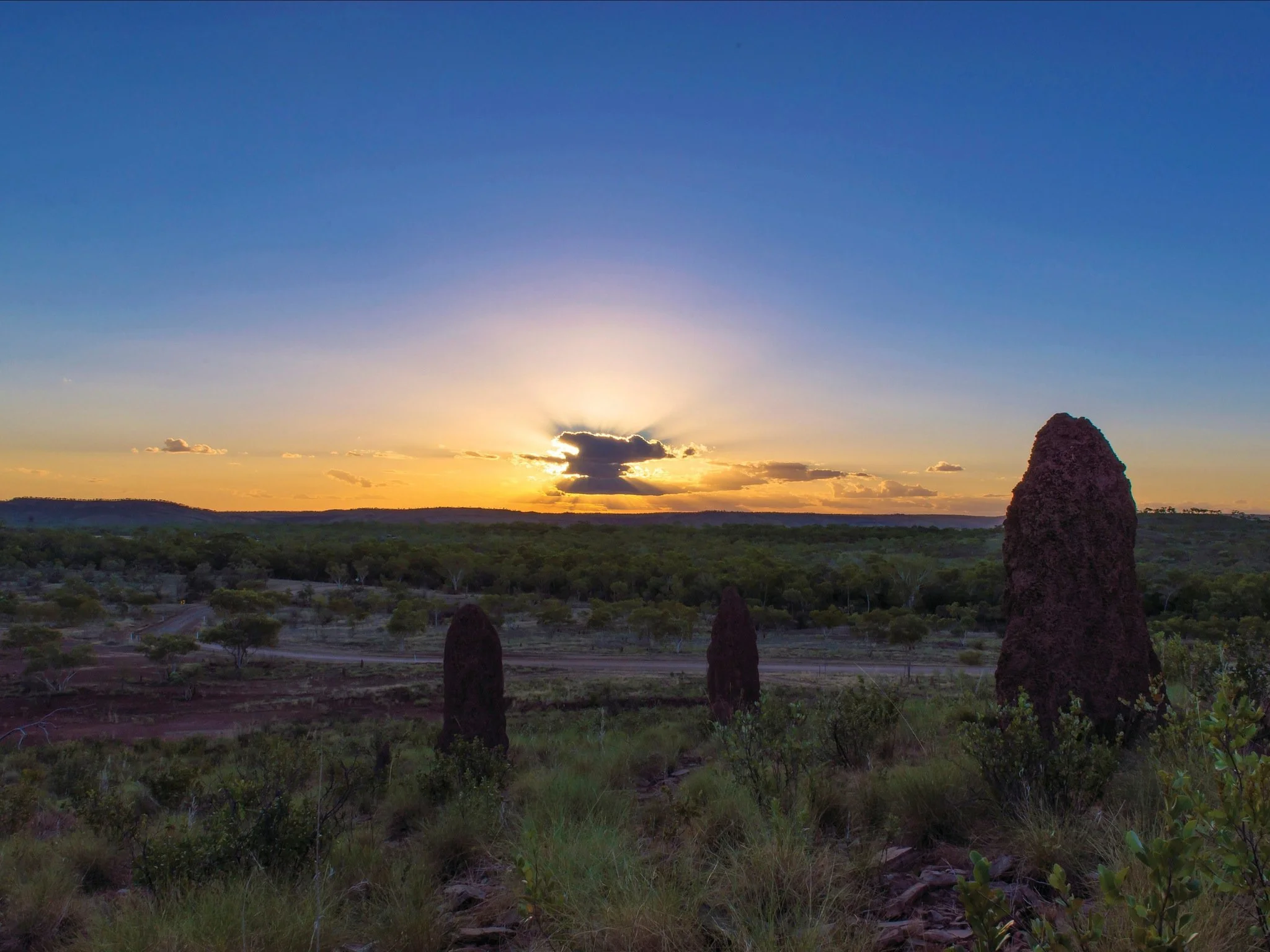Visit Cloncurry
Cloncurry is located in North West Queensland, 120 kms East of MOUNt Isa. The town is situated on the Cloncurry river, named by Burke and Wills in their 1861 expedition to the Gulf of CarpentAria.
In 1867 copper was discovered in the region by Ernest Henry, and by 1884 the town had developed, servicing the local copper mine.
Today Cloncurry is home to around 3000 people. The main industry is cattle grazing, with large sale yards located in town, as well as copper and gold mining. The Equestrian Centre is located on Hensley Drive, next to Schumacher Park Racecourse.
Whether you travel by car, 4WD, caravan or campervan we have compiled a bit useful information to help you plan a fun and safe trip.
You should adhere to the road rules and speed limits as signed and common sense should dictate your actions. These Travellers’ Tips have been compiled to assist you in ensuring a safe and enjoyable journey.
Stay On Track Outback is a road safety initiative of the Queensland Police Service and has all the links and info you need to prepare for your Outback adventure.
For even more info on staying safe on the road see the Department of Transport and Main Roads’ tips on driving in the outback or visit Outback Queensland Road Safety.
Caravanners
Caravanning is a great way to travel as Caravans are self-contained and have many of the comforts of home, including shower and toilet, refrigerator, gas stove, microwave oven and more.
There are caravan parks available in all the major towns along the Overlander’s Way. For tips on planning a caravanning holiday, visit Caravanning Queensland.
Campervan
Campervans are fitted out specifically for camping. Campervans can accommodate a couple or a whole family comfortably. As is the case with Caravanning, there are Caravan Parks located all along the Overlander’s Way.
For tips on planning your Campervan trip, visit Qld Driving Holidays.
4WD
For the off-road enthusiast, there are plenty of opportunities to go bush and explore the great open spaces and wild attractions along the Overlander’s Way.
Around Hughenden, enjoy the variety of national parks, visit Porcupine Gorge National Park, fondly known as Australia’s little ‘Grand Canyon’. Camp and relax in an idyllic bush setting at Kooroorinya, a natural billabong with great bird watching and photographic opportunities.
Family Sedan
The Overlander’s Way is accessible by family sedan, and towns are usually no more than a few hours apart.
Travelling throughout Northern Australia in the dry winter months from April to
October is very pleasant. The days are temperate and the nights cool. Summer is the wet season with higher temperatures and the chance of minor localised flooding. If you are planning to travel in summer make plans in case you experience flooding.
General Tips
Pre-trip planning
A little bit of preparation goes a long way in the Outback – Ensure you have a good map and plan ahead. It’s a good idea to calculate travel times and distances between stops, even prepare alternative routes, especially when travelling during the Australian summer (Nov – Apr) when rain and storms can impede travel plans.
Be Prepared
Along the Overlander’s Way fuel stops are rarely more than 200 kilometres apart so it should not be necessary to carry spare fuel. However, where you do see “no fuel” signs, it means exactly that. Ensure that your vehicle is mechanically sound, carry a first aid kit, ample water and spares such as tyres, radiator hoses and fanbelts, together with a good tool-kit. Ensure that your spare tyre is at the correct pressure.
Road Conditions
Contact the local Visitor Information Centre in the town that you are visiting or the RACQ on 1300 130 595, for current road conditions. Alternatively, visit The Queensland Government Traffic & Travel Information website www.131940.qld.gov.au or call 13 19 40.
Weather Conditions
North West Queensland summers are hot but much less humid than on the coast and more bearable. Most facilities and transport are air-conditioned. Storms and heavy rains can occur during summer and minor flooding can cause some towns to become cut off for a few days, but this is all part of the adventure of the Outback. The most temperate weather occurs between the beginning of April and the end of October. Wearing a broad brimmed hat and sunscreen is recommended for all seasons.
Personal Medications
Before setting out you should ensure you have adequate supplies of all personal medications. While medical facilities are available in most towns, these facilities are not necessarily provisioned to complete prescriptions for your regular medications.
Mobile Phone Coverage
Townsville, Charters Towers and Mount Isa have coverage from Telstra and Optus Networks. Outside of these towns only the Telstra Next G network is available, usually within a 20km radius of towns. Public phones are available in all towns.
Heavy Vehicles/ Road Trains
Care should be taken when passing and overtaking road trains and heavy vehicles, including; other caravans. Ensure you have a clear line of sight, allow plenty of room and be prepared for vehicles to move a little from side to side as you overtake. If a road train is approaching to overtake you, move as far to the left as possible and stop if necessary to allow it to overtake safely.
Stay in Contact
If you’re travelling remotely it’s always a good idea to let someone know where you’re going, and when you plan to get there. Keeping in touch is not as hard as you might think, via phone or radio. See more information on Outback communication.
Single Lane Driving
When meeting road trains and heavy vehicles on single lane roads, slow right down and move off the road to the left, if it is safe to do so move of the road entirely and stop to avoid driving into any obstacles on the verge. In wet conditions road verges tend to be soft and/or slippery, so when pulling off to the left you should always keep your right wheels on the bitumen and keep moving slowly to avoid getting bogged.
Animals
If you see stock or wild animals near the road, slow down; don’t swerve as this may cause your vehicle to roll. Be patient of stock and wary of kangaroos and emus, it pays to be vigilant when driving in the Outback, especially either side of sunrise or sunset – when kangaroos tend to be at their most active and the light more difficult.
Station Properties
Many roads are gated and cross station properties. The rule of the Outback is to leave gates in the same way that you find them, ie. if the gate is closed when you get there, close it again after you drive through or, if the gate is open when you arrive, leave it open.
Minimal impact
Depending on how you drive, you can be a welcome visitor or someone who causes careless damage to roads and wildlife. Follow these tips for low impact driving.
Stay on existing roads and tracks.
Give way to animals. Parks and forests are for their protection.
If you get stuck, try not to use trees for winching. If you have no choice, use tree protectors.
Wash your vehicle thoroughly before and after trips to prevent the spread of weeds.
Water Crossings
The Queensland Government is urging motorists to prepare a Plan B to avoid flooded roads as part of the new ‘If it’s flooded, forget it’ safety campaign.
Many drivers don’t understand the risks when driving into floodwater and often feel pressured to do so by other drivers or their own strong desire to get home in severe weather.
Preparing a Plan B can help drivers avoid dangerous floodwater by considering alternative routes for their usual journey, identifying safe locations to wait for the water to recede and arranging a friend or family member to collect the kids from school or daycare.
Talk to your family and friends about the following safety tips:
Never drive, ride or walk through floodwater. Remember any amount of swift flowing water can sweep a car away.
A 4WD vehicle will not protect you from floodwaters – all vehicle types are vulnerable.
Never assume a flooded road is safe to cross, even if you have driven the road a ‘thousand times’.
Forget what kind of car you drive, no one can predict what is in the water, how it will behave or what’s happened to the road surface underneath.
Forget the queue of cars behind you, or those that have proceeded before you.
Remember – if it’s flooded, forget it.
Fires
Most roads run through private property or national parks and open fires should never be lit. Use only designated fireplaces.
Litter
Help us keep the outback clean for future visitors by properly disposing of your rubbish.
Information Centres
Always use accredited Visitor Information Centres to obtain local and regional information.

